
|
John Aunins view abstract | back to agenda
Executive Vice President of Bioprocess & Manufacturing and Chief Technology Officer, Seres Therapeutics
John has worked with Seres Therapeutics since 2011 to lead their bioprocess development and manufacturing of live bacterial ecologies for the treatment of diseases of the microbiome. Prior to this, he spent 22 years with Merck Sharp & Dohme Research Laboratories developing vaccines and therapeutic protein biologics and supporting manufacturing. At Merck, his group developed bioprocesses for six licensed vaccines: VAQTA®, VARIVAX®, ZOSTAVAX®, ProQuad®, ROTATEQ®, and GARDASIL®. The VAQTA® and GARDASIL® bioprocesses won ACS Industrial Biotechnology Awards; VAQTA® was an early continuous culture process employing single-use technologies in 1991. He is a Fellow of the American Institute for Medical and Biological Engineering, and an adjunct Full Professor at the Instituto de Tecnologia Quimica e Biologica (ITQB) in Oeiras, Portugal, and has published over 65 peer-reviewed manuscripts, chapters, reviews, and opinions in bioengineering. Dr. Aunins obtained his PhD in Chemical Engineering from MIT in 1989 under Institute Professor Daniel I.C. Wang.
|
 |

|
Jeffrey C. Baker view abstract | back to agenda
Deputy Director, Office of Biotechnology Products, CDER, FDA
Initially trained as a molecular cell physiologist, Dr. Baker received his doctorate in biochemistry from the University of North Texas and completed post-doctoral studies at the University of California, Berkeley before joining the biosynthetic process development group at Eli Lilly & Co in 1988. While at Lilly, Dr. Baker led the development of several commercial bioproducts from bench-top purification to global launch, supported post-launch process development activities, and lead Lilly’s Global Validation Practices Team. After completing his certification as a Lean Six Sigma Black Belt, Dr. Baker focused on corporate initiatives related to assessment and enhancement of control, capability, and functional governance processes. Dr. Baker left Lilly to be Senior Director of Manufacturing Science and Technology at MedImmune, a subsidiary of AstraZeneca, where he was engaged in organizational redesign and plant start-up activities. Dr. Baker was appointed Deputy Director of the Office of Biotechnology Products in the Center for Drug Evaluation and Research at the FDA in 2011. Dr. Baker has been recognized with several CDER citations for leadership within OBP and was a part the team which developed and stood up the CDER Office of Pharmaceutical Quality. |
 |
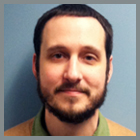
|
Paul W. Barone back to agenda
Associate Director, BioMAN and CAACB, CBI, MIT
Dr. Barone has been at the MIT Center for Biomedical Innovation since 2010. He currently is the Associate Director of two biopharmaceutical industry consortia housed at MIT: the Biomanufacturing Research Program (BioMAN) and the Consortium on Adventitious Agent Contamination in Biomanufacturing (CAACB). He manages sponsored projects and activities for both BioMAN and CAACB, with topics ranging from analysis of media treatment options to risk assessment and risk control for adventitious agent contamination. |
 |

|
David Berry view abstract | back to agenda
General Partner, Flagship Ventures
David Berry joined Flagship in 2005, where he focuses on innovating, entrepreneuring, and investing in new ventures in life sciences and sustainability. He is a founder of Flagship portfolio companies including Joule Unlimited, Eleven Biotherapeutics (NASDAQ: EBIO), Seres Therapeutics (NASDAQ: MCRB), Axcella Health, LS9 (acquired by Renewable Energy Group), and Indigo. Prior to Flagship, David received an MD from Harvard Medical School and a PhD from the MIT Biological Engineering Division, working in the laboratories of Professors Ram Sasisekharan and Robert Langer, completing the dual degree in just over 5 years.
David currently serves on the Leadership Council of the United Nations Sustainable Development Solutions Network. He is currently on the Boards of the Hackley School and the Juventas New Music Ensemble, and has served on the MIT Corporation, its Board of Trustees, as well as the Boston Philharmonic Orchestra.
David was elected a 2014 Young Global Leader by the World Economic Forum. Previously, David was named the Innovator of the Year by Technology Review, and received the prestigious Lemelson-MIT Student Prize for invention and innovation. He was also selected by the US State Department as 1 of 12 Innovators Helping to Reshape Reality. |
 |
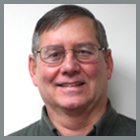
|
James Bouressa view abstract | back to agenda
Senior Director, Clinical Manufacturing, Pfizer
Jim received his BS and MS in Chemical Engineering at the University of Rhode Island in 1983 and 1985, respectively. He started his career at Pfizer in 1985 as a Fermentation Manufacturing Engineer in the Specialty Chemical Division, located in Groton, CT. Jim transferred to Pharmaceutical Sciences, Bioprocess R&D in 1989, where he was responsible for the commissioning and start-up of a new fermentation process development facility. Post start-up he was the operations leader, then manager of the facility from 1992–2003.
In 2003, Jim accepted a position as Head of Bioprocess R&D Manufacturing in St. Louis, MO, where he was responsible for the process development scale-up facility and early phase clinical manufacturing facility. In 2011, he transferred to Andover, MA, where he continued as head of BRD Manufacturing in an expanded role. Additional responsibilities included additional process development and scale-up areas as well as process development liaison to commercial manufacturing.
Currently, he is responsible for the design, construction, and start-up of a new clinical manufacturing facility in Andover, MA. |
 |
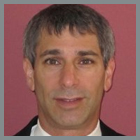
|
Stuart Bussell view abstract | back to agenda
Senior Director, Process Development, Sutro Biopharma
Dr. Bussell has been developing processes for the industrial production of recombinant proteins since 1993. He has worked as an independent consultant as well as for several biotechnology companies, including Sutro Biopharma and Ambrx. Dr. Bussell’s prior manufacturing experiences include leading the production of large molecule APIs successfully used in clinical trials. Dr. Bussell is currently leading Sutro Biopharma’s Process Development group, which is responsible for large-scale cell free protein synthesis reactions, production of its cell free extracts and reagents, and production of purified APIs. Dr. Bussell earned his BS degree in Chemical Engineering from Rensselaer Polytechnic Institute and his PhD from Cornell University. |
 |

|
Jie Chen view abstract | back to agenda
Vice President, CMC Operations, WuXi Biologics
Jie Chen currently is Vice President of CMC Operations at WuXi Biologics responsible for management of CMC operations and team in the US to support technical strategy alignment of internal efforts with client product development goals. Jie has over 20 years of experience in process development, protein characterization, formulation, and manufacturing production fields for biological drugs with a track record of scientific journal publications in bioprocessing areas. Prior to joining WuXi Biologics, she served as Senior Director of Process Sciences at Dyax, leading development programs from cell line development to GMP supply of clinical and commercial biologic drugs. During her 16-year career at Dyax, Jie was in charge of building and managing process development teams, governing CMC programs, and overseeing CRO/CMO development and manufacturing activities. Post Dyax-Shire acquisition, Jie held the position of Process Development and CMC Director at Shire, managing CMC operations of both early and late stage development programs for legacy Dyax monoclonal antibody products. Jie worked also in several biotech companies in Cambridge, Massachusetts before Dyax. Jie Chen has an MD degree in Internal Medicine from School of Medicine, Xi’an Jiaotong University, received post-doctoral training at University of Pennsylvania, Philadelphia, PA, and obtained an MS degree in Physiology and Neurobiology from Rutgers University, Piscataway, NJ. |
 |

|
Eliana Clark view abstract | back to agenda
Vice President, Manufacturing Sciences, Biogen
Eliana Clark, PhD, is Vice President of Global Manufacturing Sciences at Biogen. In this role, she leads the global network accountable for providing scientific and technical support for all process-related aspects of clinical and commercial manufacturing of large and small molecules, and end-to-end manufacturing from raw materials to finished goods, for all internal and external manufacturing sites. Prior to her role as the leader of the Global Manufacturing Sciences organization, Eliana was the operations asset leader for Zynbrita™, Biogen’s recently-approved Mutiple Sclerosis drug. Prior to Biogen, Eliana held positions of increasing responsibility at Genzyme Sanofi, where she led the Late Stage Drug Product Development organization, the Manufacturing Technical Support group supporting both Drug Substance and Drug Product manufacturing at the Allston Landing Facility, and the CMC regulatory group, supporting all US manufacturing sites for Genzyme. Prior to Genzyme, Eliana was a professor and leader at Tufts University. During her tenure at Tufts, Eliana was the Chair of the Chemical and Biological Engineering Department and the Assistant Director of the Biotechnology Center. Eliana holds a PhD in Chemical Engineering with post doctorates from the University of Delaware and Worcester Polytechnic Institute. |
 |
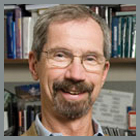
|
Charles L. Cooney back to agenda
Professor Emeritus, Department of Chemical Engineering; Faculty Director Emeritus, Deshpande Center for Technological Innovation, MIT
Charles Cooney is Professor Emeritus of Chemical and Biochemical Engineering in the Department of Chemical Engineering and was the founding Faculty Director of the Deshpande Center for Technological Innovation at MIT. His degrees include a Bachelor’s degree in Chemical Engineering from the University of Pennsylvania and Master’s and PhD degrees in Biochemical Engineering from MIT. He was elected (2009) to the first class of American Chemical Society Fellows and awarded Honoris Causa by Ramon Llull University in Barcelona. He serves as a consultant to a number of biotech and pharmaceutical companies, is on multiple editorial boards of professional journals, and sits on the Boards of Directors of Mitra Biotech (India), GreenLight Bioscience, Pronutria, Boyd Technologies, Levitronix Technologies, and Innovent Biologics (China). He was previously on the Boards of Genzyme, Cuno, Pall Corporation, Biocon (India), Polypore International, and Astra AB. He chaired the FDA Advisory Committee for Pharmaceutical Science from 2004-2006. His research interests include manufacturing in the pharmaceutical, biotech, and bioprocess industries, as well as bioprocess design, operation, and control, processing of pharmaceutical powders, and technological innovation strategy. As founding faculty director of the Deshpande Center, he is interested in the process of stimulating technological innovation and translating innovation into new company creation. In addition, Professor Cooney is a Trustee Emeritus of Boston Ballet, and an Overseer of the Boston Symphony Orchestra. Other interests include: high-altitude mountaineering (with ascents of Denali, Ama Dablam, Mont Blanc, Kilimanjaro, and Huascarán), scuba diving, skiing, and antique map collecting. |
 |
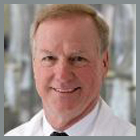
|
Parrish M. Galliher view abstract | back to agenda
Chief Technology Officer, Upstream, GE Healthcare Life Sciences
Mr. Galliher earned his BA in Biology at Boston University (1975) and then joined the Biofuels R/D Laboratories of Dynatech R/D Corporation where he built and studied the performance of continuous biomethanation stirred tank and packed bed fermenters to convert coal synthesis gas, kelp seaweed, freshwater algae, and municipal solid waste continuously to methane and higher alkanes. Mr. Galliher then earned his MS degree in Biochemical Engineering at MIT (1981) after which he joined Biogen in 1981, where he was responsible for design, commissioning, validation, and operation of Biogen’s Cambridge, MA biomanufacturing facilities for both microbial fermentation and Verax continuous perfusion mammalian cell manufacturing. As Director of Process Engineering, he led the team responsible for the development of the commercial upstream process for Avonex® (interferon beta-1a) and the startup, initial validation, and commissioning of Biogen’s Avonex® commercial manufacturing facility, later licensed by the FDA. Mr. Galliher joined Alpha-Beta Technology (ABT) in 1994 as Director of Manufacturing Development and led the technology transfer, startup, validation, and commissioning of ABT’s commercial biopharmaceutical manufacturing plant in Smithfield, RI, at which he became Vice President of Operations and General Manager in 1997. Mr. Galliher joined LeukoSite in 1999 as Vice President of Biologics Manufacturing and continued in that role after Millennium Pharmaceuticals acquired LeukoSite in 1999. At Millennium, Mr. Galliher led the CMC Team that contributed to FDA and EMA commercial licensure of CAMPATH® monoclonal antibody in 2001-2002. At Millennium, he created and led the $18M biologics single-use manufacturing “Factory of the Future” Program which enabled high-speed development of Millennium’s monoclonal antibodies for clinical trials (from clone to new facility to drug in the clinic in 12 months). In December 2002, Mr. Galliher became Founder, President and Chief Executive Officer of Xcellerex, an advanced single-use biomanufacturing technology and services company, at which he led the creation and commercialization of the single-use (SU) XDR™ mammalian and microbial bioreactor, the XDM™ and XDUO SU mixing systems, and the turnkey SU modular FlexFactory® biomanufacturing platform. As Principal Investigator, Mr. Galliher led Xcellerex’s $19M US DoD DARPA/DTRA prime contract for the “Accelerated Manufacture of Pharmaceuticals Program” (AMP), awarded in 2007 and continued through Phase 2 and successful Swine flu Live Fire Test in 2010. In 2012, GE Healthcare acquired Xcellerex and Mr. Galliher took on the new role of Chief Technology Officer, Upstream for GEHC. Also in 2012, Mr. Galliher was awarded Bioprocess International’s 2012 “Thought Leader of the Decade”. Mr. Galliher is committed to the potential of biotechnology to transform human health, and is a co-inventor of numerous patents in the field of advanced, high-efficiency biomanufacturing technologies. |
 |
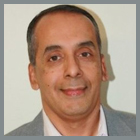
|
Shekar Ganesa view abstract | back to agenda
Executive Director, Process Development, Amgen
Shekar Ganesa has 20+ years of experience in Process Development and Program Management. He has a proven track record in global regulatory submissions and approvals at Genzyme-Sanofi and Amgen for several innovative biologics. Ganesa also has a strong blend of scientific and regulatory (FDA/EMEA/MHW) knowledge combined with exceptional verbal and written communication skills (authoring IND, CTD, BLA, and Comparability Protocol submissions) for product approvals. |
 |
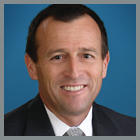
|
Hugh A. Haydon view abstract | back to agenda
President, Kentucky BioProcessing
Hugh Haydon is a Founder and continues to serve as President of Owensboro, Kentucky-based Kentucky BioProcessing (KBP). KBP specializes in the expression, extraction, purification, and commercial-scale production of proteins from plant-based systems.
Prior to the founding of KBP, Mr. Haydon served as Vice-President of Programs for a Washington, DC-based consulting group focused on identifying and commercializing promising technologies. His career also includes ten years as Commissioner of Economic Development for the Commonwealth of Kentucky, where he was responsible for negotiation of over $2 billion in financing transactions as well as creation and implementation of a number of successful and award-winning programs aimed at promoting innovation and technology commercialization.
Under his leadership, KBP has built a global network with active collaborations in Europe, Africa, Asia, and the United States, all focused on the deployment of tobacco plant-based protein expression systems.
Hugh is a graduate of the University of Kentucky and continues to serve the Commonwealth as Chair of the Kentucky Workforce Innovation Board.
|
 |

|
Gregory Hiller view abstract | back to agenda
Associate Research Fellow, Culture Process Development, Pfizer
Greg Hiller obtained his PhD in Chemical Engineering from the University of California, Berkeley in 1993. For ten years, he worked for a small biotech startup company (BioTransplant) in Boston that was attempting to pioneer xenogeneic organ transplantation. Since 2003, Greg has been a group leader in the culture process development group at Wyeth, now Pfizer, in Andover, MA.
Greg’s group is focused on developing methods to control the accumulation of growth-inhibitory compounds with the ultimate goal of identifying and overcoming the current limitations to peak cell density and sustained productivity in fed-batch CHO cell culture and innovative continuous upstream processes. |
 |

|
Nathan C. Ihle view abstract | back to agenda
Vice President, CMC Strategy & Management, Seattle Genetics
Nathan Ihle joined Seattle Genetics in 2002 and has held various leadership positions in the company. In his current role, Nathan has responsibility for CMC Project & Alliance Management as well as overseeing the CMC Strategy for the company’s product portfolio. He led the CMC team responsible for the development and commercialization of ADCETRIS® (brentuximab vedotin). Prior to joining Seattle Genetics, Nathan served as Director of Chemistry at Celltech and at PathoGenesis. Earlier in his career, he conducted drug discovery research at Merck. Dr. Ihle is trained as a synthetic organic chemist, having earned a BA from Whitman College and a PhD from Stanford University. He conducted postdoctoral research at the University of California, Berkeley. |
 |
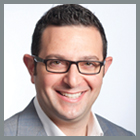
|
Avak Kahvejian view abstract | back to agenda
Co-founder and Chief Executive Officer, Rubius Therapeutics
Dr. Avak Kahvejian joined Flagship Ventures in 2011 as a Partner in VentureLabs®, focusing on internal biotechnology innovation and venture creation. Avak was on the founding team of Seres Therapeutics, and
is a co-founder of Codiak BioSciences (pioneering exosome therapeutics) and Rubius Therapeutics (the Red-Cell Therapeutics™ company). He currently serves as the Founding President and Chief Executive Officer
of Rubius.
Prior to Flagship, Avak was at Helicos BioSciences, a Flagship VentureLabs® company which developed and commercialized the world’s first single molecule sequencing technology. At Helicos since 2004, Avak held various business development, product management, marketing, and sales roles. Most recently, as Vice President, Business Development for Helicos, he focused on establishing strategic partnerships in the areas of high-throughput sequencing and molecular diagnostics, leveraging the technology’s unique capabilities.
Avak earned his PhD from McGill University in the laboratory of Dr. Nahum Sonenberg, where his research focused on modulators of mRNA translation and their regulation. During his studies at McGill, Avak was awarded a Canadian Institutes of Health Research operating grant as a co-investigator to Dr. Sonenberg, and was selected for the Dean's Honour List upon graduation. |
 |

|
Stephen Kennedy view abstract | back to agenda
Chief Technology Officer, Histogenics
Stephen Kennedy joined Histogenics in 2013, and has more than 30 years of experience in biological manufacturing and process development, including 18 years at Genzyme. He is currently Chief Technology Officer at Histogenics, with responsibilities over R&D, Process Development, Manufacturing, and Quality. As Genzyme’s Senior Vice President of Biologics Technical Operations, he developed cGMP biologics manufacturing operations at facilities in Belgium and France, oversaw Genzyme’s gene therapy operation in San Diego, and formed the global Biologics Operations organization. Mr. Kennedy developed the manufacturing process optimization organization that supported Genzyme’s full range of products, including all biologics, Carticel®, and hyaluronic acid products such as Seprafilm®. Mr. Kennedy has a BS in Chemical Engineering from the University of Michigan, an MS in Chemical Engineering from the University of Rochester, and an MBA from Boston University. |
 |
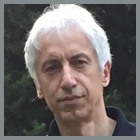
|
Konstantin Konstantinov view abstract | back to agenda
Senior Vice President, Manufacturing & Process Sciences, Codiak BioSciences
At Codiak, Konstantin is responsible for the development, scale-up, and commercialization of their novel exosome manufacturing platform. Before joining Codiak, he served as a Vice President of late-stage bioprocess and technology development at Sanofi’s Boston Hub. Prior to that, Dr. Konstantinov worked for Bayer in Berkeley, CA, advancing to the position of Head of Process Sciences.
During the last 25 years, Dr. Konstantinov has worked on the development and commercialization of various products, including monoclonal antibodies, blood factors, and enzymes expressed in mammalian cells. He has published 60 peer-reviewed papers and has more than 15 patents and patent applications. Recently, he has pioneered the development of an end-to-end integrated continuous biomanufacturing platform, which is becoming a strategic technological trend for the biomanufacturing industry worldwide.
Dr. Konstantinov received his PhD in Biochemical Engineering from Osaka University, Japan, which was followed by a post-doctoral assignment at DuPont and the University of Delaware. |
 |
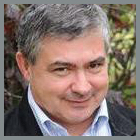
|
René Labatut view abstract | back to agenda
Vice President, Technology Innovation, Sanofi Pasteur
René Labatut is a 26-year veteran in the biotech industry with deep experience in CMC management in the biopharmaceutical industry, from research & development to manufacturing management. He has international experience in technology innovation, technology transfer, licensing in and out, and acquisition-integration management.
René is currently the Vice President and Head of Technology Innovation of the Sanofi Pasteur Vaccines Division of Sanofi. He has made significant contributions to development and commercialization of several key biotherapeutic products, including Ceredase, Thymoglobulin, and the Hexavalent Pediatric, Flu, and Dengue vaccines.
René holds a PhD in Biochemistry and a Master’s in Bioengineering from the National Institute of Applied Sciences (Lyon, France); a Master’s in Molecular Biology from the University of Lyon; and a Master’s in Business from Jean Moulin University Lyon III. |
 |
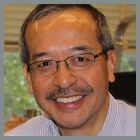
|
James C. Leung back to agenda
Senior Research Fellow, CBI, MIT
Jim Leung is a Senior Research Fellow at the MIT Center for Biomedical Innovation (CBI). He serves as the lead investigator for the Consortium on Adventitious Agent Contamination in Biomanufacturing (CAACB) and the Biomanufacturing (BioMAN) program. He contributes to the design and implementation of biotechnology-related courses and serves as a lecturer in some of these courses at MIT. He maintains a strong connection to industrial practices by serving as a consultant/advisor to pharmaceutical & biotechnology companies and other research organizations. Before his current roles, Jim held full-time positions at Genentech, Repligen, and Ipsen in the areas of process development, manufacturing, and product development of recombinant biotherapeutics. Jim received a SB degree from the Chemical Engineering Department at MIT. For graduate studies, he completed an SM degree and a PhD degree in Biochemical Engineering from MIT. |
 |

|
J. Christopher Love view abstract | back to agenda
Associate Professor, Department of Chemical Engineering, MIT
J. Christopher Love is an Associate Professor in Chemical Engineering and member of the Koch Institute for Integrative Cancer Research at MIT. In addition, Chris is an associate member at the Eli and Edythe L. Broad Institute, and at the Ragon Institute of MGH, MIT, and Harvard. Dr. Love received his PhD in 2004 in Physical Chemistry at Harvard University. He extended his research into immunology at Harvard Medical School from 2004-2005, and at the Immune Disease Institute from 2005-2007. His research centers on using simple microsystems to measure and correlate multiple phenotypic and functional characteristics of individual lymphocytes, and from these single-cell data, generate quantitative, system-wide profiles of immune responses. Current areas of research in the lab include
i) multiplexed, functional profiling of lymphocytes from HIV+ patients,
ii) clonal analysis of autoreactive T cells and B cells in type 1 diabetes and multiple sclerosis, and
iii) development of quantitative, cell-based diagnostics for allergy testing.
In addition, his lab is understanding how to engineer microbial strains for manufacturing therapeutic antibodies. Dr. Love was named a Dana Scholar for Human Immunology and a Keck Distinguished Young Scholar in Medical Research in 2009, as well as one of Popular Science’s Brilliant 10 in 2010. Chris is also a Camille Dreyfus Teacher-Scholar. |
 |

|
Aura Mackenzie view abstract | back to agenda
Senior Principal, Global Pricing and Product Strategy, Precision for Value
Aura joined Precision for Value in 2016 as a Senior Principal leading the Global Pricing and Product Strategy group in Boston, following more than 10 years in pricing and market access consulting at PriceSpective (now ICON) and IMS Health. She has applied her comprehensive background in global pricing, reimbursement, and healthcare systems to more than 100 strategy engagements for pharma and biotech clients.
Aura has a particular interest in cell and gene therapies, and other transformative medicines. She has been working on gene therapy global strategy for several years with a number of leading pharma and biotech companies in the space. She has been involved in projects spanning the US, EU, and rest-of-world markets, considering issues in a number of different therapeutic areas and product types.
|
 |

|
Samantha Maragh view abstract | back to agenda
Leader, Genome Editing Program, NIST
Dr. Samantha Maragh is a Research Biologist in the Bioassay Methods Group within the Biosystems and Biomaterials Division at the National Institute of Standards and Technology (NIST). Samantha began working at NIST after completing her undergraduate BS degree in Cellular & Molecular Biology from Loyola University in Baltimore, MD. While working for NIST, she went on to receive an MS in Biotechnology from Johns Hopkins University in the specialty area of Molecular Targets & Drug Discovery, followed by completing a PhD in Human Genetics & Molecular Biology from the Johns Hopkins School of Medicine, McKusick-Nathans Institute of Genetic Medicine. Samantha is currently developing and leading NIST’s programs supporting genome editing for gene and cell therapies. She also leads a project supporting better measurements for early detection of prostate cancer biomarkers in collaboration with the National Cancer Institute. Her research and program goals are focused on understanding the reliability of measurements and technology development for genome editing, bioassays, and cancer biomarkers, with applications in engineering biology and precision medicine.
|
 |

|
Travis A. McCready back to agenda
President & Chief Executive Officer, Massachusetts Life Sciences Center
Travis McCready is the President and Chief Executive Officer of the Massachusetts Life Sciences Center, a $1 billion public–private partnership with the mission of advancing the life sciences sector in Massachusetts. He directs and oversees the center’s investment strategy, along with the agency’s operations, programs, and partnerships. Previously, Mr. McCready served as the Vice President for Programs at the Boston Foundation, directing the Foundation’s grants and community investment strategy to benefit the people of Greater Boston. Prior to that, he was the first Executive Director of the Kendall Square Association, responsible for growing the innovation economy of Kendall Square, one of the Commonwealth’s most economically robust districts. He has also held the Chief Operating Officer and Chief Financial Officer positions at the Massachusetts Convention Center Authority, overseeing the operations and finances for the three convention centers in Massachusetts.
Mr. McCready serves on the Boards of the American Repertory Theater in Cambridge, Beth Israel Deaconess Medical Center, the Conservation Law Foundation, Life Science Cares, and WBUR. He has served on the Economic Development Planning Council under two governors, including co-chairing the subcommittee on innovation and entrepreneurship. In 2009, he was named one of Boston’s top “40 under 40” young business leaders by the Boston Business Journal. Mr. McCready is a frequent speaker on economic development strategy as it relates to the convergence of private, public, and not-for-profit interests, and his blog, Life Sciences Discourses, has been recognized by The Boston Globe.
Mr. McCready received his BA from Yale University and JD from the University of Iowa, and began his law career as a corporate attorney in Minneapolis, MN. |
 |
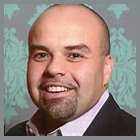
|
PJ Millan view abstract | back to agenda
Head of Process Automation, R&D Platform Technology & Science, GlaxoSmithKline
Peterjohn (PJ) is Head of R&D Process Automation, where he leads the automation team accountable for process automation and manufacturing system technologies across drug substance and drug product for small and large molecule supply. His team is accountable for engineering process control and operations management systems focusing on platform integration as an enabler for effective data management and product lifecycle management. PJ has been at GSK throughout his career, starting in 2005, working in front-line operation and technology roles across manufacturing and R&D. |
 |

|
Peter Nguyen view abstract | back to agenda
Technology Development Fellow, Laboratory of James Collins, Wyss Institute of Biologically Inspired Engineering, Harvard University
Peter received a BS in Biochemistry and BA in Philosophy from the University of Texas, his MBs from the Keck Graduate Institute, and his PhD in Biochemistry from Rice University. Peter works at the Wyss Institute Living Cellular Devices Platform and Lab of Jim Collins. His research interests include cell-free biomanufacturing, self-assembling engineering, and synthetic biology. |
 |

|
Rajeev Ram view abstract | back to agenda
Professor, Department of Electrical Engineering and Computer Science, MIT
Rajeev J. Ram is Professor of Electrical Engineering and Computer Science at MIT where he is a MacVicar Fellow. His group works on optical biosensing and microfluidic control of cellular processes. During the last decade, his focus has been on developing microbioreactors for bacterial, yeast, and mammalian cell lines. His group has developed and commercialized batch, fed-batch, perfusion, and continuous culture microbioreactors. Most recently, they have worked on the precise control of synthetic gene circuits using this platform. In addition to his work on microfluidics, his group has worked on rapid optical analysis techniques. They demonstrated the first quantitative Raman analysis in situ within a bioreactor. Their group has developed Raman for the quantification of metabolites in microbial and mammalian cell culture as well as for medical applications. Recently, his group has been working on the development of Raman for quantitative analysis of therapeutic proteins with potential application in real time release. |
 |
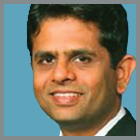
|
Rahul Singhvi view abstract | back to agenda
Senior Vice President and Chief Operating Officer, Global Vaccine Business Unit, Takeda Pharmaceuticals International
Rahul Singhvi, ScD, MBA, is Chief Operating Officer of Takeda’s Global Vaccine Business Unit and is responsible for global supply of vaccines at the Takeda Pharmaceutical Company.
Dr. Singhvi is a recognized business leader in the pharmaceutical industry and has deep experience in vaccine development and manufacturing. Before joining Takeda, Dr. Singhvi was President and Chief Executive Officer of Novavax, a Nasdaq-listed biotechnology company. In 2010, Novavax was named one of the ten most innovative companies in the biotechnology industry by Fast Company magazine. During his tenure at Novavax, Dr. Singhvi transformed the company from a specialty pharmaceutical business to a premier vaccine development company. Singhvi’s professional career began at Merck in 1994, where he held several key positions in R&D and manufacturing. At Merck, he co-lead the varicella-zoster virus vaccine project team that oversaw the development of Varivax®III (chickenpox vaccine), ProQuad® (MMRV pediatric combination vaccine) and Zostavax® (Shingles vaccine).
Dr. Singhvi graduated as the top ranked chemical engineer from IIT, Kanpur, India and obtained both his SM and ScD chemical engineering degrees from MIT. He received an MBA degree from the Wharton School of the University of Pennsylvania, where he graduated as a Palmer Scholar. |
 |
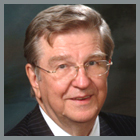
|
Anthony Sinskey back to agenda
Professor, Department of Biology; Faculty Director, CBI, MIT
Anthony J. Sinskey, ScD, is a Professor of Biology at the Massachusetts Institute of Technology. He also holds positions as Co-Director of the Malaysia-MIT Biotechnology Partnership Program and as Faculty Director of the MIT Center for Biomedical Innovation. He conducts interdisciplinary research in metabolic engineering focusing on the fundamental physiology, biochemistry, and molecular genetics of important organisms.
Professor Sinskey is well known in the biopharmaceutical industry and has been a Scientific Co-founder of several biotechnology companies, including Genzyme, Metabolix, Merrimack Pharmaceuticals, and Tepha. Dr. Sinskey has given more than 350 presentations at US and international scientific meetings and congresses. He has received 31 issued patents, has made more than 30 invention disclosures, and has published more than 350 scientific papers in leading peer-reviewed journals for biology, metabolic engineering, and biopolymer engineering.
His current research focuses on the genetics and biochemistry of carbon storage in biological systems including biopolymers and triacylglycerides. Investigations include studies with a variety of feedstocks to fuels, chemicals, and biopolymers.
Dr. Sinskey received his undergraduate degree from the University of Illinois at Urbana-Champaign and his ScD in Microbiology and Food Science from the Massachusetts Institute of Technology. His post-doctoral work was done at the Harvard School of Public Health.
|
 |
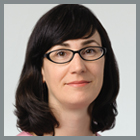
|
Stacy L. Springs back to agenda day 1 | back to agenda day 2
Director, BioMAN; Executive Director, CAACB, CBI, MIT
Dr. Stacy Springs is the Director of the Biomanufacturing Program (BioMAN) and the Executive Director of the MIT Consortium on Adventitious Agent Contamination in Biomanufacturing (CAACB) at the MIT Center for Biomedical Innovation. BioMAN is a collaborative research and educational program in biotherapeutic manufacturing that involves biopharmaceutical manufacturers, vendors, regulators, other government stakeholders, and academics. The objective of this program is to develop new knowledge, science, technologies, and strategies for advancing the safe manufacture and global delivery of high-quality biopharmaceuticals. The CAACB was established to share information around adventitious agent contamination and risk mitigation for the benefit of the biopharmaceutical manufacturing industry and the patients receiving medications produced from cell culture.
Dr. Springs holds a PhD in Chemistry from the University of Texas at Austin and gained postdoctoral training in protein and biophysical chemistry at Princeton University. Prior to joining MIT, Stacy was a Senior Scientist and Director of Collaborative Projects at Tetralogic Pharmaceuticals, an oncology drug discovery company based in Malvern, PA. |
 |

|
Ariel Dora Stern view abstract | back to agenda
Assistant Professor of Business Administration, Harvard Business School
Ariel Dora Stern is an Assistant Professor of Business Administration in the Technology and Operations Management Unit at Harvard Business School. She teaches the Technology and Operations Management course in the MBA required curriculum.
Ariel’s research focuses on the management of innovation in health care, with a focus on the medical device and pharmaceutical industries. Her projects seek to understand the drivers of innovation among firms and the determinants of how medical technologies are adopted and used in practice. Ariel is particularly interested in the intersection of the regulation, firm strategy, and economics of health care. She also researches the digital transformation of medical technology and health care delivery, investigating the policy and managerial questions raised by the growth of “digital health.” Her research has been cited by Bloomberg, The New York Times, and National Public Radio.
Professor Stern received her PhD in Public Policy from Harvard, where she was a National Bureau of Economic Research Predoctoral Fellow in the Economics of Health and Aging and was honored with the Harvard Kennedy School Dean’s Award for excellence in student teaching. She holds an undergraduate degree in economics from Dartmouth College, where she was a Presidential Scholar and a two-time US national collegiate figure skating champion. Before beginning her academic career, she worked as an economist on Wall Street and at the Federal Reserve Bank of New York, the German Institute for Economic Research (DIW), the German Development Bank (KfW), and LeapFrog Investments, an impact investment fund. |
 |

|
Christopher Stevens view abstract | back to agenda
Senior Director, Operations, Planning, and Strategy - Biopharm and Cell & Gene Therapy, GlaxoSmithKline
Chris Stevens is Senior Director of Operations, Planning and Strategy at GlaxoSmithKline where he leads strategy development and deployment in R&D for the Biopharm and Cell and Gene Therapy platforms. He took on this role in early 2016 after leading clinical manufacturing, supply chain, process transfer, and cell banking operations at GSK. Prior to GSK, he held roles of increasing responsibility at Bristol-Myers Squibb (BMS) in Manufacturing, Supply Chain, and Manufacturing Sciences/Process Engineering in Indiana, Puerto Rico, and Massachusetts with focus on operations leadership and the implementation of advanced technologies. Chris received his MS in Industrial Management from the University of Southern Indiana and a BS in Chemical Engineering from Purdue University. |
 |
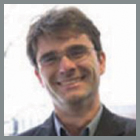
|
Jorg Thommes view abstract | back to agenda
Senior Vice President, Engineering & Technology, Biogen
Dr. Jorg Thommes currently is the Senior Vice President of Engineering & Technology at Biogen. In this role, he oversees all aspects of process development, device development, analytical development, manufacturing engineering, capital project planning and execution, and manufacturing sciences. Responsibilities encompass clinical and commercial manufacturing process development for all modalities like proteins, small molecules, gene therapy, and oligonucleotides, scientific support of manufacturing operations, and functionality and maintenance of the physical infrastructure supporting manufacturing. Previous positions included Senior Vice President of Technical Development and Vice President of Global Facilities and Engineering at Biogen. Prior to joining the biopharmaceutical industry, Dr. Thommes had a research and teaching position at the Institute of Enzyme Technology at University of Dusseldorf in Germany under the leadership of Professor Maria-Regina Kula. He holds a Doctorate of Natural Sciences from University of Bonn, Germany and an advanced University Research and Teaching degree (Habilitation) in Biochemical Engineering from University of Dusseldorf. Dr. Thommes is a member of the board of directors of the Recovery of Biological Products conference series and served as the chairman of this board until July of 2016. |
 |

|
Krystyn J. Van Vliet view abstract | back to agenda
Professor, Department of Materials Science and Engineering and Department of Biological Engineering; Director of Manufacturing Innovation, MIT Innovation Initiative, MIT
Professor Van Vliet leads the Laboratory for Material Chemomechanics at the Massachusetts Institute of Technology (MIT). She also currently leads an international team of engineering and clinical researchers in the US and Singapore as the Singapore-MIT Alliance for Research & Technology (SMART) BioSystems & Micromechanics interdisciplinary research group. Her BioSyM team has developed several novel devices to detect, diagnose, and treat human disease via rapid mechanical analysis of fluids, cells, and tissues; these products have resulted in several spinoff companies and academic training bootcamps. Those efforts include new and label-free methods for adult mesenchymal stem cell isolation from stromal cell populations, with clinical trials currently underway. Professor Van Vliet co-organized the 2014 World Congress of Biomechanics, the premier quadrennial international conference for academia and industry, and was the MIT Faculty Lead of the Advanced Manufacturing Partnership 2.0 that provided analysis and recommendations for manufacturing technology roadmaps and workforce training through the President’s Council of Advisors for Science & Technology’s 2014 report, Accelerating U.S. Advanced Manufacturing. She now serves as the Director of Manufacturing Innovation for the MIT Innovation Initiative, supporting the range of MIT’s efforts in public-private partnerships for advanced manufacturing across industry sectors. Professor Van Vliet earned her ScB from Brown University (1998) and PhD from MIT (2002) in Materials Science and Engineering, and completed postdoctoral research at Boston Children’s Hospital. |
 |
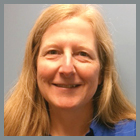
|
Jacqueline Wolfrum back to agenda
Research Scientist, CBI, MIT
Dr. Wolfrum is a Research Scientist at MIT’s Center for Biomedical Innovation (CBI). She works with the BioManufacturing (BioMAN) Program to develop their new initiative in the area of cell and gene therapy manufacturing. She previously worked on development of microbioreactors for the culture of mammalian cells in the laboratory of Professor Rajeev Ram in the Physical Optics and Electronics Group at MIT’s Reasearch Laboratory of Electronics (RLE). She has more than 15 years of experience in research, development, and manufacturing technical support for cGMP cell therapy products and cell-based medical devices in previous positions at W.R. Grace and Genzyme Biosurgery. Dr. Wolfrum received an SB in Chemical Engineering from MIT and a PhD in Biomedical Engineering from RPI. |
 |

|
J. Fraser Wright view abstract | back to agenda
Co-founder and Chief Technology Officer, Spark Therapeutics
Dr. Fraser Wright serves as Co-founder & Chief Technology Officer of Spark Therapeutics in Philadelphia, Pennsylvania. He has been engaged for more than 20 years in the development of viral vector-based new biologic products in both industry and academic settings. Fraser previously served as the director of the Clinical Vector Core Laboratory at The Children’s Hospital of Philadelphia, a world-class manufacturing facility that has designed, manufactured, characterized, and certified recombinant adeno-associated viruses (AAV) and lentiviruses (rLenti) for human gene therapy trials. He also was a professor of pathology and laboratory medicine at the University of Pennsylvania. Fraser has led efforts in basic research, process and analytical methods development, and GMP manufacturing and quality systems supporting translational research. He has overseen investigational product chemistry, manufacturing, and controls for gene therapy vectors administered to more than 150 human subjects in 12 clinical studies. With basic training in biochemistry, immunology, and virology, his primary research interests focus on the development and clinical translation of gene therapy vectors with the goal of achieving effective new treatments for serious human diseases. He previously served as director of development and clinical manufacturing at Avigen. He received his BS and PhD in Biochemistry from the University of Toronto. |
 |
|
|

